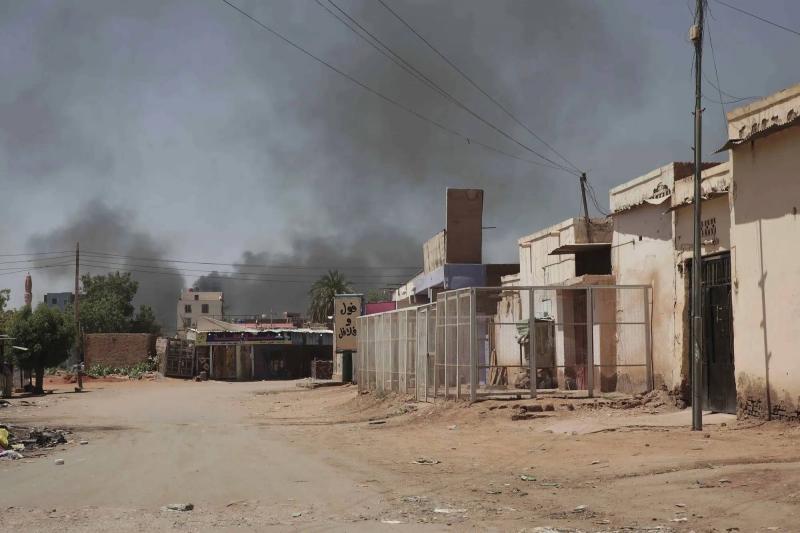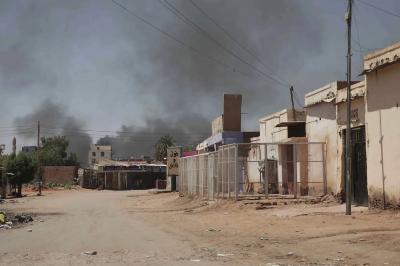The situation in Sudan, as it approaches the fourth week of fighting between the Sudanese army and the Rapid Support Forces, remains critical, marked by death, smoke, hunger, pillaging, and looting. Both sides of the conflict are fighting from within residential buildings and are using hospitals and government facilities as military bases.
While Human Rights Watch has called for a UN arms embargo on Sudan, Sudanese people woke up on Friday to the sound of massive explosions, as the health crisis worsens, particularly alarming for kidney patients who are suffering from a lack of healthcare and necessary care. UNICEF projected that "at least 190 children have died in the battles in Sudan." The United Nations stated it requires approximately $96 million to assist thousands fleeing Sudan.
Mohamed Hamdan Dagalo, known as "Hemedti," the leader of the Rapid Support Forces, mentioned that he received a call from Egyptian Foreign Minister Sameh Shoukry to discuss the situation in Sudan and the ongoing crisis. He added that they talked about initiatives aimed at finding a comprehensive solution and a ceasefire.
The Rapid Support Forces announced on Friday that they have extended the truce for an additional 72 hours in response to American-Saudi mediation, aimed at opening humanitarian corridors, easing movement for citizens and residents, enabling them to meet their needs, and reach safe areas.
In their official statement on Twitter, they confirmed their compliance with the ceasefire request and expressed their commitment to it. They welcomed local, regional, and international initiatives, thanking the African Union, the Intergovernmental Authority on Development, the UAE, Egypt, Ethiopia, South Sudan, and all friendly nations striving for a solution to the current conditions in the country. The Sudanese army also announced its agreement to extend the ceasefire for an additional 72 hours.
Egyptian Foreign Minister Sameh Shoukry called on both sides of the conflict during his phone conversations to adhere to the ceasefire, allowing opportunities for relief operations and humanitarian assistance.
Regarding evacuation efforts, Ethiopia reported over 12,000 people fleeing since the onset of the fighting. Kenyan Foreign Minister Alfred Mutua stated in an interview with Al Jazeera that it was unfortunate that two generals in Sudan decided to confront each other at the expense of the people, indicating that they had communicated with the generals and managed to agree on a ceasefire, which he deemed an achievement for the Sudanese. He noted that the fighting in Sudan has widely undermined the health sector's ability to serve its citizens, and added that hundreds of thousands of Sudanese are fleeing to neighboring countries, creating a significant humanitarian crisis.




